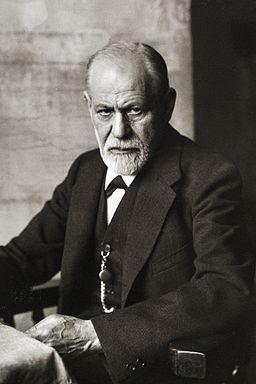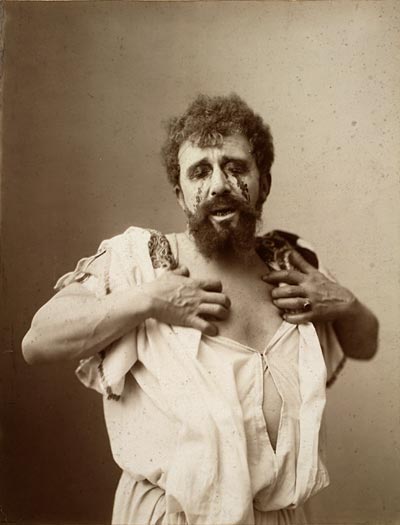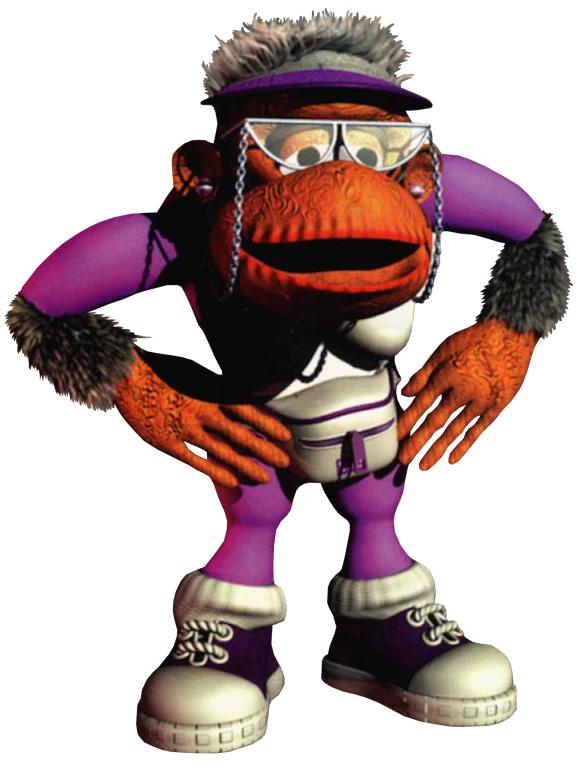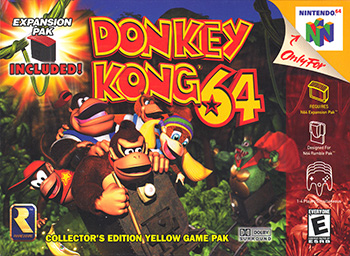Freud and Donkey Kong
- Andy Gills

- Sep 24, 2023
- 5 min read
When people think of Donkey Kong, they probably don’t have Austrian psychoanalyst Sigmund Freud in mind. However, much like Freud’s analysis of the unconscious, most gamers absorb many Freudian concepts when playing classic Donkey Kong games like Donkey Kong, Donkey Kong Junior, Donkey Kong Country, or Donkey Kong 64. In this article, I wish to shed light on some of dark undertones that simmer below the Donkey Kong series.
Artist recreation of what Sigmund Freud might have looked like.
Donkey Kong
The game that started it all. Here, you play as Jumpman (now known as Mario) as you save Pauline (now known as Pauline) from the hands of Donkey Kong (now known as Cranky Kong). Regardless of the titular character being the antagonist of the game, rest assured this entry is still canon. More importantly, Freud’s fingerprints can be seen all over this game. Fraud believed there were two things that motivated animals: sex and aggression. Each of these characteristics is embodied by the protagonist and antagonist. Mario wishes to save his girlfriend Pauline, probably because he has a lot of pent up sexual frustration. Donkey Kong, however, aggressively kidnaps Pauline. He also aggressively attacks Jumpman by throwing barrels at him, an obvious metaphor. Being a primitive game, there is little more to say on the Donkey Kong arcade game, but even a baby can see Freud left a huge impact on this entry into the Donkey Kong mythos.
Donkey Kong Jr.
Here we can see Miyamoto has done his AP psychology homework. This game stars Donkey Kong Jr. (Alias unknown. Fans have speculated for decades whether Donkey Kong Junior is the modern incarnation of Donkey Kong, or if he is the modern DK’s father) as he attempts to free his father Donkey (Cranky) Kong from Mario’s clutches. The game can be analyzed under an Oedipal frame. The Oedipus Complex, coined by Freud, was theorized to be a latent desire in all males to usurp their father, born from a desire to have sex with their mother.
Named after the real life Oedipus
This causes the boy to first resent their father and, subsequently, adopt their father’s behaviors in an attempt to compete with their dad. In this game, Donkey Kong Jr. is doing what his father could not: defeating Mario. He is defeating his inherited failures and, in a sense, defeating his own father. In a Freudian sense, he is unconsciously cuckolding his own father by proving he is indeed the superior ape. Presumably, this is being done to win the affection of his mother, Wrinkly Kong.
Wrinkly is considered one of the more attractive Kongs on DK Island
The Donkey Kong Country trilogy
Donkey Kong Country is an SNES trilogy comprised of DKC1, DKC2, and DKC3. The SNES series can be analyzed as a whole due to similar themes throughout. Each entry follows the same basic plot. The Kremlins, a group of no good reptiles led by the mad monarch King K. Rool, want to steal Donkey Kong’s (the modern red tie clad one) precious banana hoard.
One notices immediately the inherently phallic nature of the banana. Freud may have once said a cigar is sometimes just a cigar, but one does not have to be an English professor to see the subtext. Furthermore, the game highlights the primordial battle which persists in literature: man versus reptile. Our reptilian impulses is what drive us to sex and aggression, and it is our apishness that makes us truly human, like Donkey Kong.
Donkey Kong County
Donkey Kong Country 1 was clever in their handling of Freud. The game introduced DK’s nephew, Diddy Kong. An enlightened reader will notice that Diddy is not DK’s son. One wonders, then, how does the Oedipal Complex fit into the dynamics of these two amazing apes? Diddy’s parentage is shrouded in mystery. Did DK raise him? Is there a desire of Diddy to sleep with DK’s newly introduced girlfriend, Candy Kong? Or are his Oedipal desires pointed toward Donkey Kong’s brother, who we the audience have never met? Rareware was clever to subvert what fans were already familiar with, and they leave us with a little more curd to chew on when swinging through Jungle Japes.
Candy Kong enjoying a snack
Donkey Kong County 2
Nevertheless, we return to similar grounds in DKC2 in so far as we play as the younger hero Diddy as he attempts to rescue DK and his banana horde. There is an obvious parallel her with Donkey Kong Jr. Diddy is joined by his girlfriend Dixie Kong, more of whom will be written about in DKC3. The Oedipal resentment is not quite as strong here, seeing as how DK successfully defeated K. Rool in the last entry. This shows the stronger bond which exists between DK and Diddy when compared to Cranky and DK Jr. Nevertheless, there must be some resentment seeing as how DK managed to get himself captured.
K. Rool likes to play dress-up
Donkey Kong County 3
However, Diddy would not have too long to brag. In the finals SNES entry, both Donkey and Diddy are captured by K. Rool and the banana horde is stolen yet again. Here, it is up to Dixie Kong and her cousin Kiddy Kong to save the day. The Freudian concept of penis envy can be derived from these circumstances. Freud postulated that when young women realize they don’t have a penis, they begin to feel envious toward men. Penis envy might also be thought of as a sociological envy of women’s place within patriarchal society. Gorillas, too, live in a patriarchal society, usually rules by a single alpha (Donkey Kong) and his harem. Dixie’s actions can be explained by penis envy. She feels she is just as capable of saving the day as her male counterparts. And of course, she proves that she can indeed save the banana horde.
Banana. Coincidence?
Donkey Kong 64
Donkey Kong’s first foray into the third dimension was controversial to say the least due to its absurd amount of collectibles. This maniac dash toward collectibles could be an allusion to Freud’s propensity to partake in the booger sugar. Furthermore, the game’s design philosophy might be derived from Freud’s conception of the tripartite mind: the id, the ego, and the superego. The id is the portion of the mind which responds to pleasures. The superego is portion of the mind which considers the morality of the action. The ego attempts to balance the id and superego.
Here, the player is brought into a massive landscape to gather collectibles to proceed. However, not all collectibles are needed to move on, and many of the collectibles are simply not fun to collect. Therefore, the player is given a choice. Will they do the bare minimum to proceed, or will they 101% the game. The superego would ask you to collect everything, being the morally right choice because (1) Donkey Kong wants all his stuff back and (2) your mommy and daddy paid for the game and they would want you to not waste their money by leaving content unplayed.
"You better finish all of Donkey Kong 64...or else..."
However, the id would compel you to only play the game to the point where you are having fun. After all, isn’t that what gaming is all about? The ego attempts to rationalize the correct choice. Even beyond the story, Freud manages to penetrate the very method by which the player proceeds through the Donkey Kong series.
Donkey Kong Meme Culture
Many young people are familiar with memes (pronounced "may-mays"). These "memes" are a little like inside jokes you were never in on. Donkey Kong meme culture has a strong propensity to focus on male genitalia as the crux of the joke. Thus, we have empirical evidence that the players of Donkey Kong have incorporated phallic, Freudian symbolism into their subconscious and their subconscious has associated these symbols with the great ape Donkey Kong.
I hope this article helps illustrate why Sigmund Freud and Donkey Kong go together like peanut butter and bananas. What do you think? Does Freud have a place in Donkey Kong? Leave a comment sharing your favorite Freud or DK factoids!































Comments